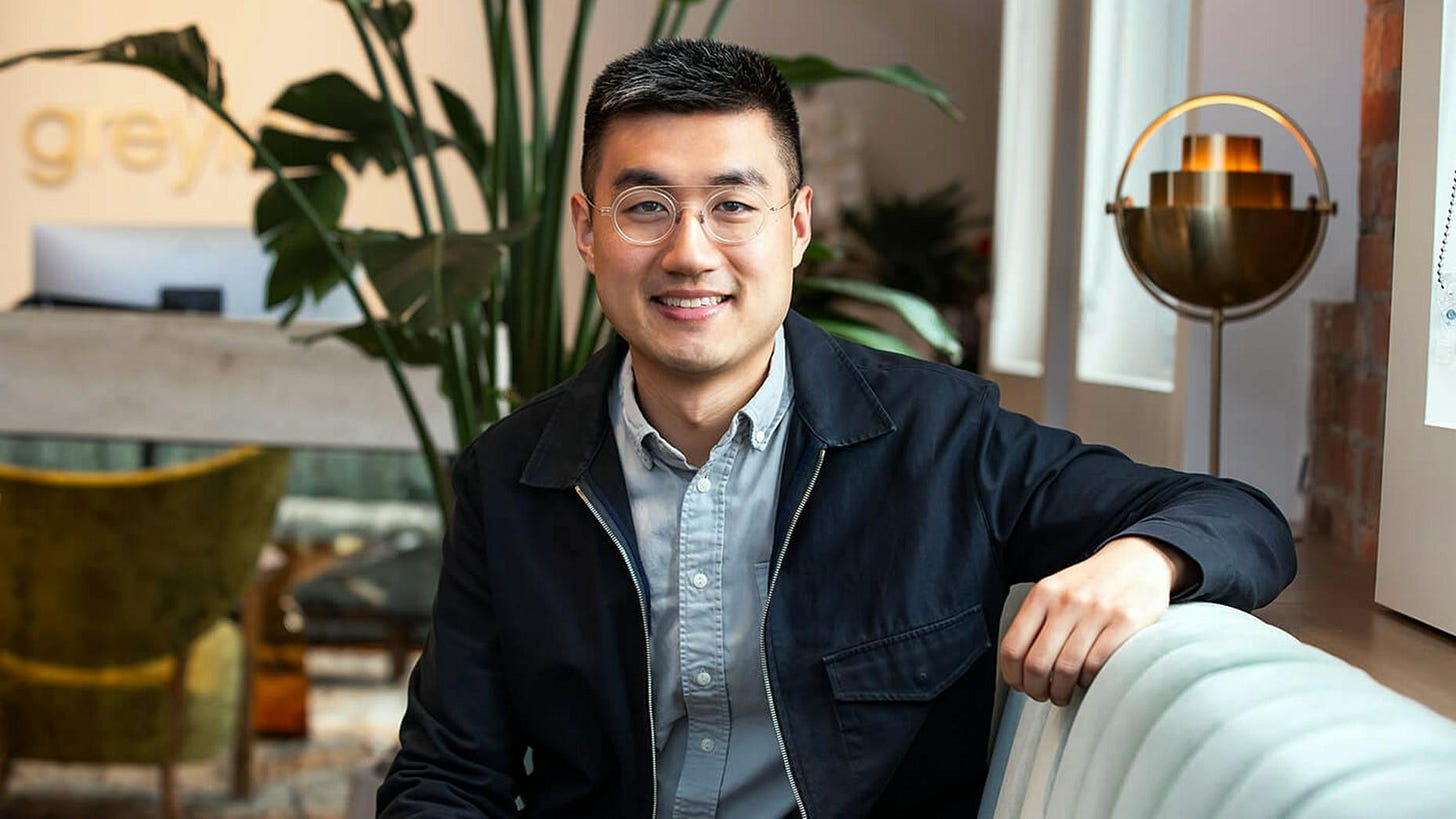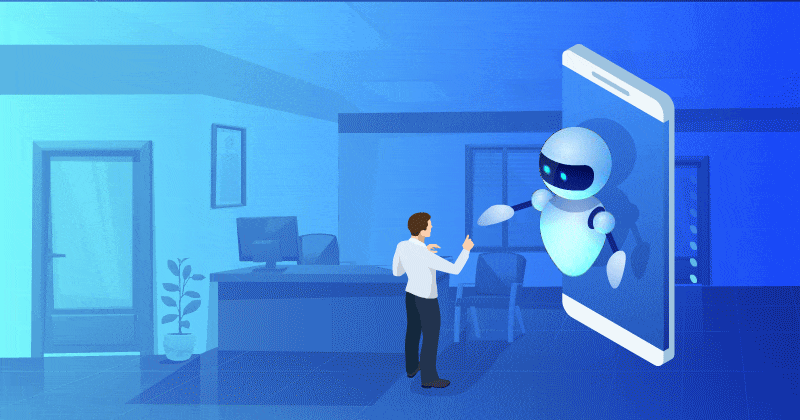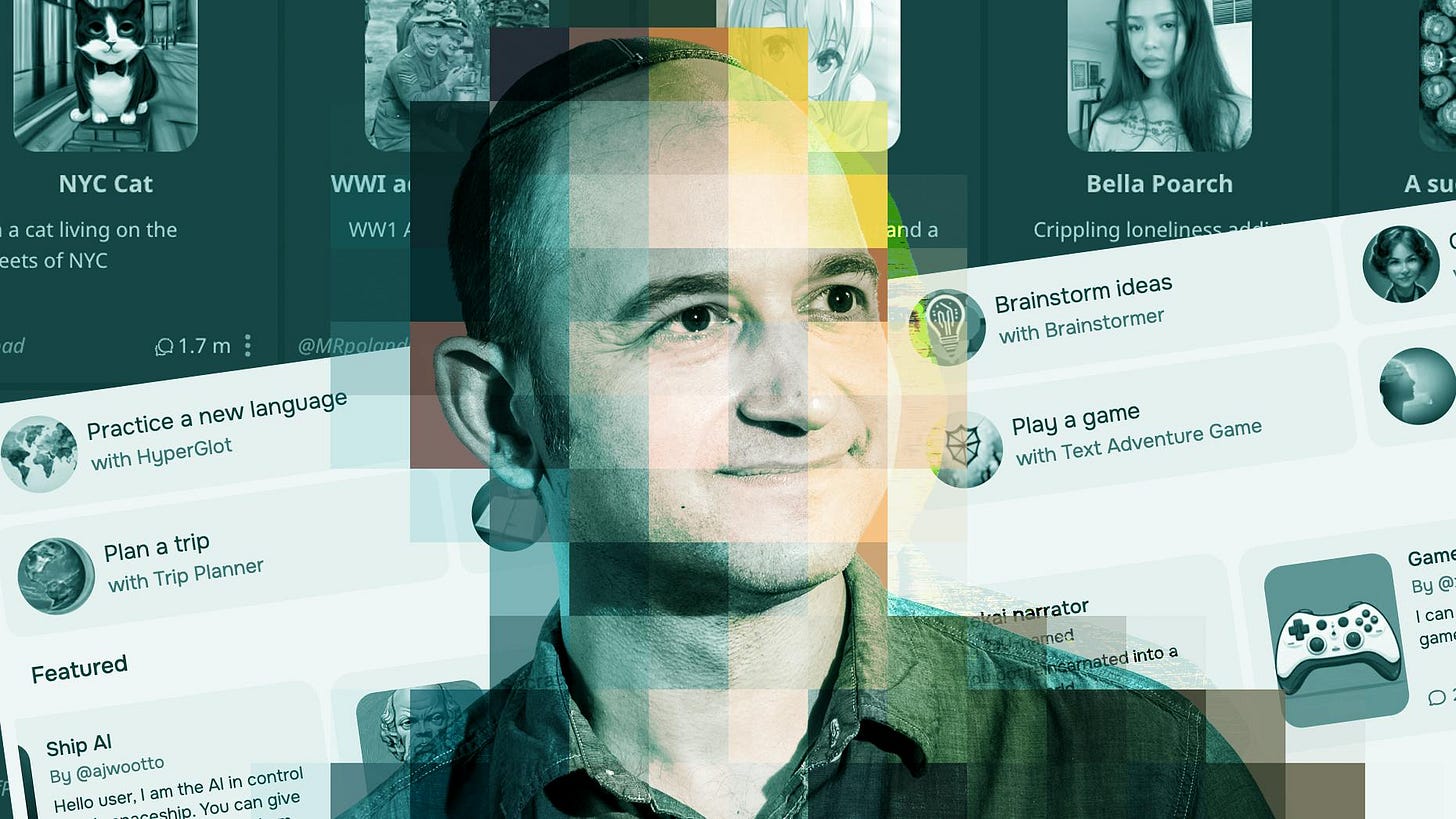Two points make a straight line, as geometry teaches us. And in AI big tech land, both Microsoft and Amazon seem to have found a way to get the AI talent they want at scale. We have a line from two points that seems to show a way.
The 1993 movie Jurassic Park, an adaptation of Michael Crichton’s memorable 1990 scifi novel of the same name, has an iconic line. Uttered by the incomparable Jeff GoldBlum, playing the mathematician Ian Malcom, he utters the memorable line “Life, uh, finds a way’. Here’s the scene and the dialogue to jog your memory.
This comes to mind as the governments in the US and abroad have been ramping up on antitrust actions against Big Tech companies right and left. Trying to temper the pace of M&A in technology, a natural, Darwinian, activity in vibrant, capitalistic markets. Well-intentioned of course, but cropping up impediments on the natural flows of water to find it way around obstacles, in these early days of this AI Tech Wave.
And as I recounted in ‘Microsoft’s Inflection point’ a few months ago, the tech companies found a way to do acquisitions. Artfully structured as mega-’acqui-hires’ of AI talent at unicorn tech startups, they managed to show the way to make tech acquisitions in all but name. For now.
And the markets have picked up on that scent, and we have a second mega transaction of the type I’m now calling ‘AI-HireQuisition’ until something better crops up. It’s Amazon and Adept. As Techcrunch reports in “Amazon hires founders away from AI startup Adept”:
“Adept, a startup developing AI-powered “agents” to complete various software-based tasks, has agreed to license its tech to Amazon, and the startup’s co-founders and portions of its team have joined the e-commerce giant.”
“GeekWire’s Taylor Soper first reported the news. According to Soper, Adept co-founder and CEO David Luan will join Amazon, along with Adept co-founders Augustus Odena, Maxwell Nye, Erich Elsen and Kelsey Szot, as well as other Adept employees.”
“Adept isn’t closing up shop, however. Zach Brock, head of engineering, is taking over as CEO as Adept refocuses its efforts on “solutions that enable agentic AI.”
“[Our products] will continue to be powered by a combination of our existing state-of-the-art in-house [AI] models, agentic data, web interaction software and custom infrastructure,” Adept wrote in a post on its official blog. “Continuing with Adept’s initial plan of building both useful general intelligence and an enterprise agent product would’ve required spending significant attention on fundraising for our foundation models, rather than bringing to life our agent vision.”
“The deal provides a lifeline for Adept, which has reportedly been in talks with Meta and Microsoft over the past few months about a potential acquisition. Microsoft previously invested in the startup.”
“As for Amazon, it gets valuable talent — and tech to bolster its generative AI ambitions. GeekWire reports that Luan will work under Rohit Prasad, the former Alexa head who’s leading a new AGI team focused on building large language models.”
“David and his team’s expertise in training state-of-the-art multimodal foundational models and building real-world digital agents aligns with our vision to delight consumer and enterprise customers with practical AI solutions,” Prasad wrote in a memo to employees obtained by GeekWire. “[The license] will accelerate our roadmap for building digital agents that can automate software workflows.”
I’ve discussed ‘Smart Agents’, ‘Agentic AI Workflows’ as amongst the two white-hot AI areas next up in this AI Tech Wave. And the need for every AI startup to get access to billions of dollars in AI data center Compute to do their AI thing at Scale as they ramp up millions of mainstream users. Thus these kinds of partnerships are the one possible way forward without raising extraordinary amounts of capital to go to the next level in AI products and services.
As the Information’s Stephanie Palazzolo provides broader context in “With Adept Deal, Amazon Copies Microsoft”:
“What Adept’s statement really means is that launching AI for enterprises (or consumers) is hard if you don’t already have a lot of customers, because companies that have a lot of customers are implementing cutting-edge AI rather quickly. This is becoming an old theme, so wake us up when you see any counter-examples.”
“Readers of The Information have even less reason to be surprised by the deal: we were the first to report Adept’s discussions with potential buyers, including Meta Platforms, in May.”
“We don’t know the terms of the Amazon-Adept deal yet, but Microsoft’s quasi-acquisition of Inflection AI gives us a hint. In that arrangement, Microsoft agreed to pay Inflection approximately $650 million, mostly through a large language model licensing deal, that would help provide its investors a modest return on their capital, we previously reported.”
“I wouldn’t be surprised if Adept and Amazon came to a similar agreement. That would be a passable outcome for the Silicon Valley investors like Greylock Partners and General Catalyst that have poured over $400 million into the AI agent startup over the past two years.”
“These deals are also a win for the big tech firms, which get AI product expertise. I’m sure there are plenty of other struggling but talent-rich AI startups (like Character.AI, Cohere, or AI21 Labs) and big tech companies waiting, watching and learning from Microsoft. And don’t be surprised if the Federal Trade Commission pokes around, if only to annoy the acquirers—er, licensees—of these deals.”
And things are moving fast with this trend. As the Information reports about Character.ai, a company I discussed at length in terms of AI Conversation chatbots just a few days ago, there may be an acquisition afoot there as well.
They explain in “Character a Chatbot Pioneer, Mulls Deals with rivals Google and Meta”:
“Character.AI chatbots that take on whimsical or historical personas were an early hit with consumers. But bigger rivals have started to encroach on its turf, raising questions about its future.”
“A year ago, Character.AI had the wind at its back. Founded by two artificial intelligence pioneers from Google, the startup had launched AI chatbots that offered what its far larger rivals hadn’t yet provided: something fun.”
“Millions of people had signed up for its website and apps, intrigued by the chance to text with facsimiles of anime characters, TV personalities and historical figures in hyper-realistic roleplay. Executives discussed raising additional funding four months after Andreessen Horowitz and others had sunk $150 million into the startup at a $1 billion valuation.”
“That head start has since receded. In its place are signs Character, founded in November 2021, could follow other AI startups into the arms of a larger technology company.”
“As some of the novelty of personalized chatbots has worn off, competition has intensified. Meta Platforms last week started testing chatbots made by individual creators after it released chatbots modeled after celebrities like Tom Brady last fall. Google has also been developing a product for creating and conversing with custom chatbots, which could launch as soon as this year.”
“At the same time, Character has held exploratory talks over possible research partnerships with some rivals, according to a person close to Character. These include potential collaborations with Google and Elon Musk’s xAI, according to a person who spoke to company leaders.”
“In such deals, Character could hypothetically access the partnering company’s computing resources in return for sharing some of its intellectual property, the person said. The 132-person company has also discussed a research partnership with Meta, according to the people.”
A possible hitch in these discussions in the ‘AI Companionship’ aspect of this emerging market I’ve discussed before.
“One complication: A popular way people interact with the app, romantic roleplay, could turn off business partners or potential advertisers. Character says it blocks and removes content that violates its policy against sexually explicit material. Still, it isn’t hard to find plenty of romantically inclined chatbots—such as “Crush,” whose opening message includes “your faces were inches away, he was blushing heavily and the both of you felt very hot”—among more PG chatbots like Albert Einstein on its home page.”
“We have the strongest anti-NSFW policy of any consumer AI platform,” said a Character spokesperson in a statement.”
The broader point on ‘AI-HireQuisitions’ remains in an era of governmental anti-trust ire. For both possible acquirees and acquirers, as the Information elucidates:
“The challenges facing Character reflect the increasing pressures on AI startups. Often started by prominent researchers, these startups have collectively raised billions of dollars from investors eager for early stakes in the next potential tech stars.”
“For Character investors, part of the draw was CEO Noam Shazeer, an author of the seminal “transformer” research paper, and his co-founder, Daniel De Freitas, who had worked on an early chatbot at Google.”
“But many of these startups have been grappling with the high costs of training and running AI models, plus competition from tech giants and large startups such as OpenAI. Few AI entrants have shown they can make enough money to offset the costs.”
So for now, ‘AI-HireQuisitions’ remain a thing, as Microsoft and Amazon are showing the way with Inflection and Adept respectively. Two points make a straight line for now. Stay tuned.
(NOTE: The discussions here are for information purposes only, and not meant as investment advice at any time. Thanks for joining us here)









